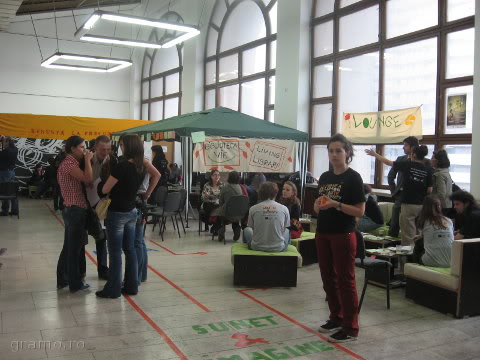Va spuneam acum vreo saptamana ca a aparut inca o carte cu aventurile lui Habarnam: Habarnam si Orasul Soarelui. Si v-am propus sa o citim impreuna. Mai fac o ultima incercare.
p.s.: Poate vreunul dintre cititorii de data trecuta mai vrea sa se implice si de data asta: Zaza, Marc, Monica, Emilian, Suzi, Dennda, Pinnochio, Optzecea, b0gdan, Hiacint, Lorena, Raluca Hippie, Valydo, Habarnam, Seceleanu, Angie, Alexandra, Kesepian, ce spuneti?
p.p.s.: Aceeasi intrebare e valabila si pentru oamenii din blogroll. In special pentru: Arhitectul, Cezar, Chestii livresti, ChriSmilla, Dulce Mahala, Eduard, Flu, Gogu Kaizer, Ionuca, Oanamarrria, Turambar, Adi Ciubotaru, Ariel, Cabral, Fata cu soarele, Mara, Monsoux, Nada, Oompa, Piticu, Puck, Sutu si Vis Urat.

 Last.fm
Last.fm